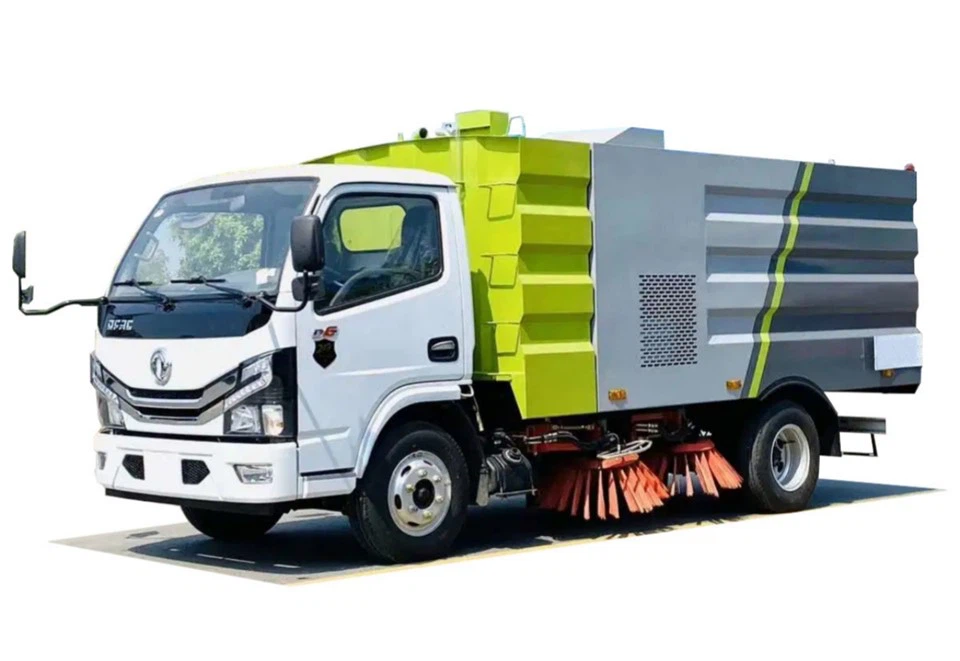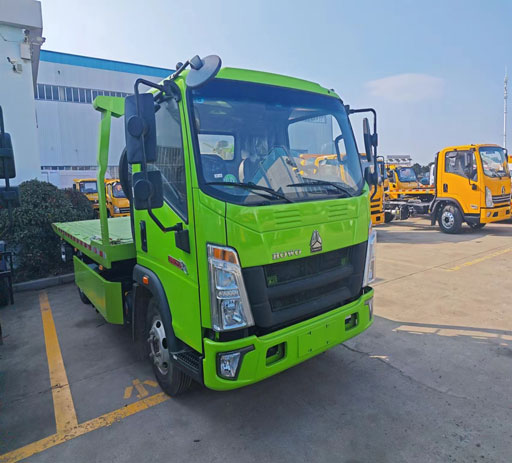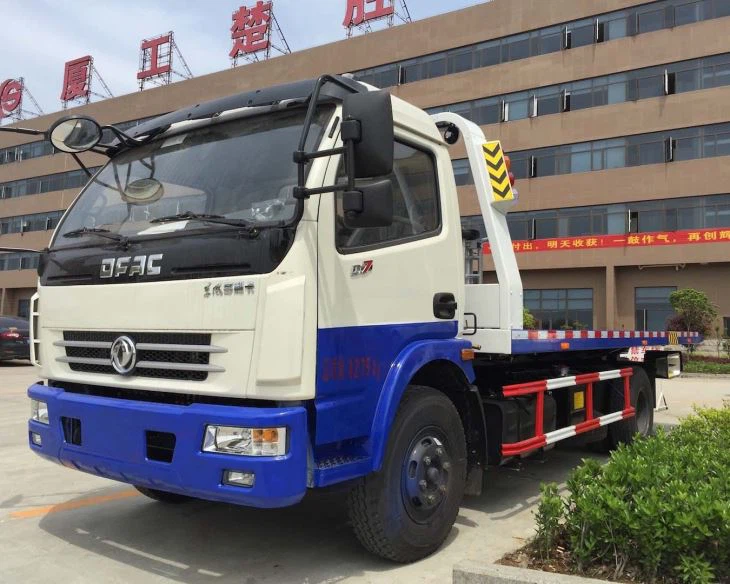Understanding Debris Removal Trucks: An Essential Guide

Introduction
Debris removal trucks play a critical role in maintaining urban cleanliness and safety. These specialized vehicles are designed to transport waste, construction materials, and other types of debris from various sites to disposal or recycling facilities. Whether after a natural disaster, during a construction project, or for routine street cleaning, these trucks are indispensable for efficient waste management. This article delves into everything you need to know about debris removal trucks, their types, functions, and tips for choosing the right service when needed.
1. What are Debris Removal Trucks?
Debris removal trucks are heavy-duty vehicles specifically designed for transporting waste and debris. They come equipped with features that allow them to handle various materials ranging from trash and rubble to vegetation and mixed waste. Depending on the type, these trucks can efficiently manage large volumes of debris from construction sites, landfill areas, and disaster recovery zones.
1.1 Types of Debris Removal Trucks
Debris removal trucks can be categorized into several types based on their design and the purpose they serve:

- Dump Trucks: Commonly used for construction debris, capable of unloading cargo through a hydraulic lift.
- Roll-off Trucks: Feature a special sliding system for handling containers that can be set down and picked up.
- Flatbed Trucks: Ideal for transporting large, heavy items that can be secured without a full enclosure.
- Grapple Trucks: Equipped with mechanical claws to pick up and load debris from areas that are hard to access.
1.2 Advantages of Using Debris Removal Trucks
Utilizing debris removal trucks ensures efficient cleanup, reducing time and manpower required for waste management. These trucks help in:
- Enhancing community cleanliness and safety
- Facilitating quicker recovery after disasters
- Contributing to environmental sustainability through recycling
2. The Role of Debris Removal Trucks in Construction Projects
Construction sites generate a significant amount of debris, ranging from concrete and metal to packaging materials and vegetation. Debris removal trucks are vital for effective cleanup and organization on these sites.
2.1 Efficient Waste Management on Construction Sites
Most construction projects require regular debris removal to keep the site organized and safe. Using specialized trucks ensures that:
- Waste is segregated properly according to material type.
- Heavy loads are transported without damaging other site equipment.
2.2 Compliance with Regulations
Local governments often impose regulations on waste management in construction. Debris removal trucks can help ensure that waste is disposed of in accordance with these regulations, avoiding potential fines and delays.
3. The Impact of Debris Removal Trucks on the Environment
Debris removal trucks, when used correctly, contribute significantly to environmental sustainability by promoting recycling and proper waste disposal.
3.1 Recycling and Recovery of Materials
Many debris removal trucks are designed to separate recyclable materials from general waste. This recycling process reduces landfill overcrowding and minimizes environmental impact.
3.1.1 Examples of Recyclable Materials
Common recyclable materials collected by debris removal trucks include:
- Metals
- Wood
- Concrete
- Glass
3.2 Minimizing Carbon Footprint
By ensuring efficient waste transport and disposal, debris removal trucks help minimize the carbon footprint associated with waste management. By optimizing routes and loads, companies can reduce fuel consumption and greenhouse gas emissions.
4. Choosing the Right Debris Removal Service
Selecting the right debris removal service can drastically affect the efficiency and effectiveness of the cleanup process. Here are key considerations:
4.1 Assess Your Needs
Identify the amount and type of debris you need to be removed. Consider factors such as:
- Volume of debris
- Accessibility of the site
- Type of materials
4.2 Research Local Services
Look for local debris removal services with a solid reputation. Review their services, vehicles, and experience. Online platforms and customer reviews can provide valuable insights.
4.3 Compare Pricing and Services
Get quotes from multiple providers. Make sure to understand what services are included to ensure you receive value for your money. Discuss hidden costs, if any, to avoid surprises.
5. Debris Removal Trucks in Disaster Recovery
After natural disasters, debris removal trucks are often deployed to clean up affected areas. Their importance in disaster recovery cannot be overstated.
5.1 Rapid Response Capability
Debris removal trucks are essential for quick cleanups after events like hurricanes, floods, and earthquakes. They allow authorities to efficiently clear roadways and restore access to essential services.
5.2 Coordination with Other Services
Effective disaster recovery often requires coordination with local governments, charities, and other entities. Debris removal trucks can facilitate this process by ensuring that waste is managed in a timely manner and helping to transport needed supplies.
6. Challenges in Debris Removal Operations
While debris removal trucks are important, their operations comes with challenges:
6.1 Traffic and Accessibility
In urban areas, debris removal operations can be impeded by traffic congestion and narrow streets. Proper planning and communication with local authorities can alleviate these issues.
6.2 Labor and Safety Concerns
Loading and unloading debris can pose safety risks. Companies must prioritize employee safety through training and proper equipment, ensuring compliance with safety regulations.
7. Innovations in Debris Removal Technology
Advancements in technology have led to enhanced debris removal solutions. Here are a few innovations:

7.1 Smart Routing Systems
Modern debris removal trucks often use GPS and smart routing systems to optimize waste collection routes, decreasing transport time and fuel consumption.
7.2 Electric and Hybrid Trucks
With a growing focus on sustainability, many companies are transitioning to electric or hybrid debris removal trucks, which help reduce their carbon footprint and lower operational costs.
8. Practical Tips for Successful Debris Removal

Whether you’re managing a construction site, recovering from a disaster, or simply cleaning up your yard, keeping the following tips in mind can enhance your debris removal efforts:
8.1 Plan Ahead
Before a project starts or a clean-up event, it’s crucial to have a detailed plan that outlines what materials need to be removed, when, and how.
8.2 Clearly Mark Debris Areas
Clearly marking the areas where debris will be collected helps drivers and workers locate waste without confusion, streamlining the removal process.
8.3 Coordinate with Local Services
If you lack the resources to manage debris removal, liaising with local services can provide the necessary support and expertise.
9. Frequently Asked Questions (FAQs)
9.1 What types of debris can be removed by these trucks?
Debris removal trucks can handle a variety of materials, including construction waste, vegetation, metal, concrete, and common household waste.
9.2 How much does debris removal typically cost?
The cost of debris removal can vary widely based on location, volume of debris, and type of materials. On average, homeowners can expect to pay between $200 to $800 for residential debris removal.
9.3 Are debris removal services available for emergency situations?
Yes, many debris removal companies offer emergency services and deploy trucks quickly to assist during disaster recovery efforts.
9.4 Can I rent a debris removal truck myself?
Yes, you can rent a debris removal truck, but it’s crucial to have the proper licenses and knowledge of safe handling and disposal practices.
9.5 How can I ensure my debris is recycled properly?
Choosing a licensed debris removal service that prioritizes recycling ensures your waste is handled responsibly and correctly sorted for recycling.
9.6 Are there any restrictions on what can be placed in debris removal trucks?
Yes, hazardous materials such as chemicals, batteries, and medical waste generally cannot be placed in standard debris removal trucks. It’s essential to consult with the service provider regarding acceptable materials.
